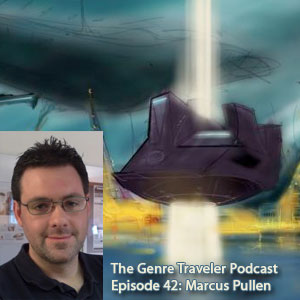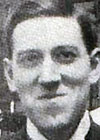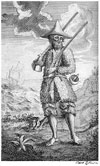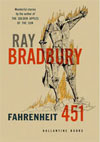 This week, my guest is Marcus Pullen who calls in from the U.K. Marcus is a genre writer and illustrator who is currently shopping around his first novel, a gothic science fiction tale called Mia. During our chat, we discuss Mia, the possibility of it becoming a graphic novel, the vagaries of movies, the effect ebooks has on literature, the proliferation of crap ebooks, the challenges of the publishing industry, the roots of science fiction literature and more.
This week, my guest is Marcus Pullen who calls in from the U.K. Marcus is a genre writer and illustrator who is currently shopping around his first novel, a gothic science fiction tale called Mia. During our chat, we discuss Mia, the possibility of it becoming a graphic novel, the vagaries of movies, the effect ebooks has on literature, the proliferation of crap ebooks, the challenges of the publishing industry, the roots of science fiction literature and more.
To help defray the cost of hosting the podcast, archived episodes greater than four months old will be made available for sale at $0.99 per episode.
Duration: 33:58
File Size: 38.9 MB
Mentioned in this Episode:
 |
H.P. Lovecraft H.P. Lovecraft was an American writer of horror, fantasy and science fiction, but his specialty was weird fiction. Much of is work was guided by the concept of “cosmic horror,” the idea that human minds couldn’t possibly comprehend life and the universe is fundamentally strange and alien. |
 |
Bram Stoker Bram Stoker was an Irish writer of novels and short stories best known for the iconic vampire tale, Dracula. |
 |
Robinson Crusoe Written by Daniel Defoe, this novel tells the story of a castaway who spends 28 years on a remote tropical island. Before being rescued, he encounters cannibals, captives and mutineers. He befriends one of the captives, naming him “Friday,” teaches him English and converts him to Christianity. The full title of the novel is The Life and Strange Surprizing Adventures of Robinson Crusoe, of York, Mariner: Who lived Eight and Twenty Years, all alone in an uninhabited Island on the Coast of America, near the Mouth of the Great River of Oroonoque; Having been cast on Shore by Shipwreck, wherein all the Men perished but himself. With An Account how he was at last as strangely deliver’d by Pyrates — quite the mouthful, eh? |
The Kindle Friends Advertisement Commercials
There is a new series of commercials for the Kindle that compare the experience of a physical book to the experience of a Kindle book. Here are a few:
 |
Fahrenheit 451 by Ray Bradbury This dystopian novel was first published in shorter form in the February 1951 issue of Galaxy Science Fiction. The story takes place in a future where books are outlawed and “firemen” go about burning the ones that remain. Many believe that the book is a commentary against state-sponsored censorship, but Bradbury himself said it was more of a commentary about how television destroys interest in reading literature. |
For more information about Marcus Pullen:
- markervisuals.com
- twitter.com/marcusart
Related Posts and Articles:

Pingback: The Genre Traveler Interview with… me! « Illustration and Writing by Marcus Pullen